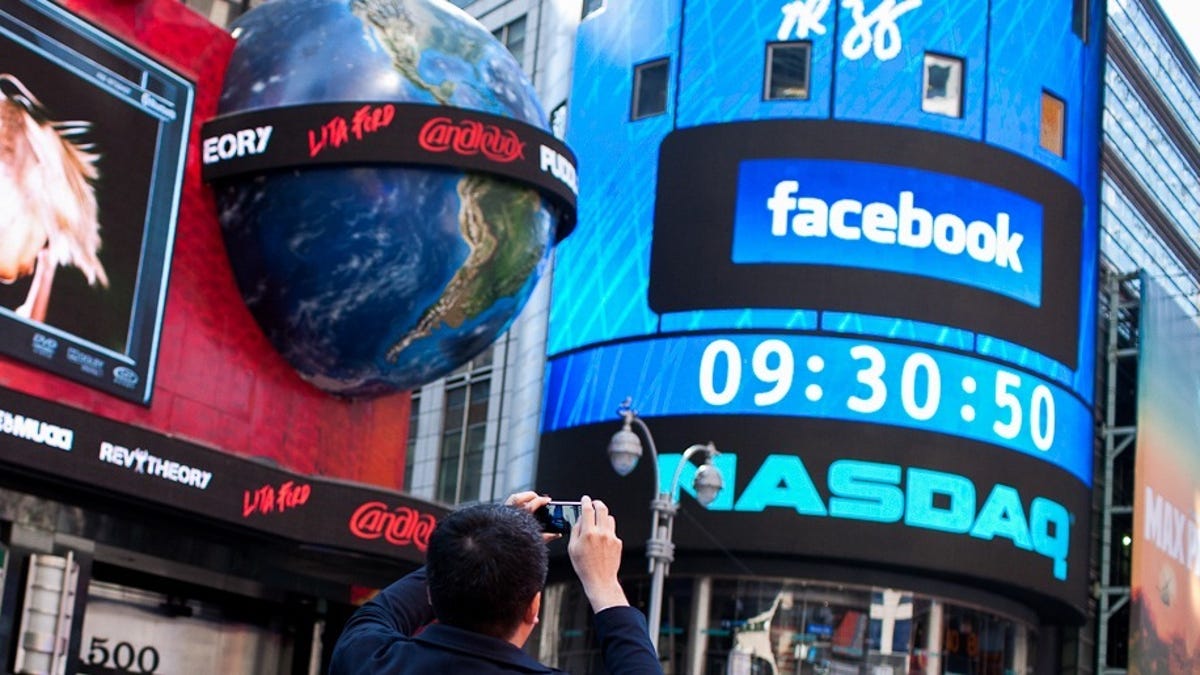Facebook stock: Let the insider selling begin
Still far below their IPO price, Facebook shares will likely face new pressure as insiders become free to sell hundreds of millions of pre-IPO shares. In early trading today, the stock sinks 3 percent.

One big question looming over Facebook's stock: How many insiders are going to start dumping their shares?
After more than five months of watching their holdings sink, most employees and early Facebook investors can start cashing in their pre-IPO stock as the so-called lockups expire. Not all at once, however, but the key dates are coming fast and one, in fact, just passed (though the markets were closed because of Sandy). By the end of the year, Facebook's float -- that's the stock that's available to trade in the open market -- will increase by more than 1.2 billion shares: a 73 percent jump.
Put simply, that's a whole lot of added supply in search of fresh demand.
On Monday, roughly 229 million shares were eligible to hit the market and could start doing so today. Some of that is from regular stock issued to employees at Facebook before 2011, some in the form of options held by earlier insiders. Either way, it's a lot -- and plenty of those holders are sitting on fat profits, even as Facebook now trades about 42 percent below its offering price of $38.
In early trading today, the first day the stock markets have been open this week following the disruption of Hurricane Sandy, shares were off more than 3 percent on heavy volume.
There's no telling who might be selling among the regular employees, and only the biggest holders need to file forms with the SEC (and that's after a sale goes through). One person we know won't sell soon is CEO Mark Zuckerberg, who in September said he wouldn't cash in any stock for at least a year.
As for his top executives, however, they're now free to turn some of that paper wealth into extraordinary riches. Last Friday, six executives, including COO Sheryl Sandberg and CFO David Ebersman, saw their big portions of their restricted stock convert into common Class A shares, which frees them up to sell.
Sandberg leads the pack, and at a price of $22 a share, her stock that just became sellable is worth $396 million -- after taxes. Ebersman's newly converted stock is worth $48.4 million after taxes. (Facebook is withholding a portion of all vested stock and paying out employee tax bills with cash, which could slightly dampen the effect of all the lockups).
Here are the next key lockup dates to look for:
- November 14 This is the biggest of the lot, with 804 million fresh shares available to hit the market. At this point, all Facebook employees who joined before 2011 can sell their vested pre-IPO shares. This date also frees up a number of other early holders.
- December 14 More than 155.9 million shares can hit the market as the stockholders who sold into the IPO are now free to dump more stock. These are the big names among Facebook insiders, including early backers Peter Thiel and Mark Pincus and co-founder Dustin Moskovitz.
- May 18, 2013 This one is a ways off, but it's worth noting. It includes more than 47.3 million shares held by Mail.ru Group Limited and DST Global Limited.
Facebook's IPO is now famous not just as the biggest tech IPO in history but as the messiest. Anyone who bought in at the IPO price -- or on day one when the stock briefly jumped into the $40s -- got burned. Some institutional investors, the so-called smart money, also bought in at prices higher than where the stock has been trading.
Then, after he was all but silent for months as the stock slid, Zuckerberg began talking up the potential of Facebook as a business. And over the past few months, Facebook has been rolling out product after product aimed at boosting the company's bottom line. To a degree, it's worked. The stock, not long ago hovering around $19, jumped to $23 after the company last week reported solid earnings and Zuckerberg tried to shatter the idea that the shift to mobile is a bad thing for Facebook.
It's also not as if these lockups are a surprise. Investors have long known they're coming. Even so, the market is rarely that rational, and the stock could stumble as people decide to cash out. Which is why Reid Hoffman, who was asked in September whether he's going to sell, said he's waiting for the lockups to pass.
Update 7:35 a.m. PT: Added information on Facebook's share movement after the stock market opened this morning.

